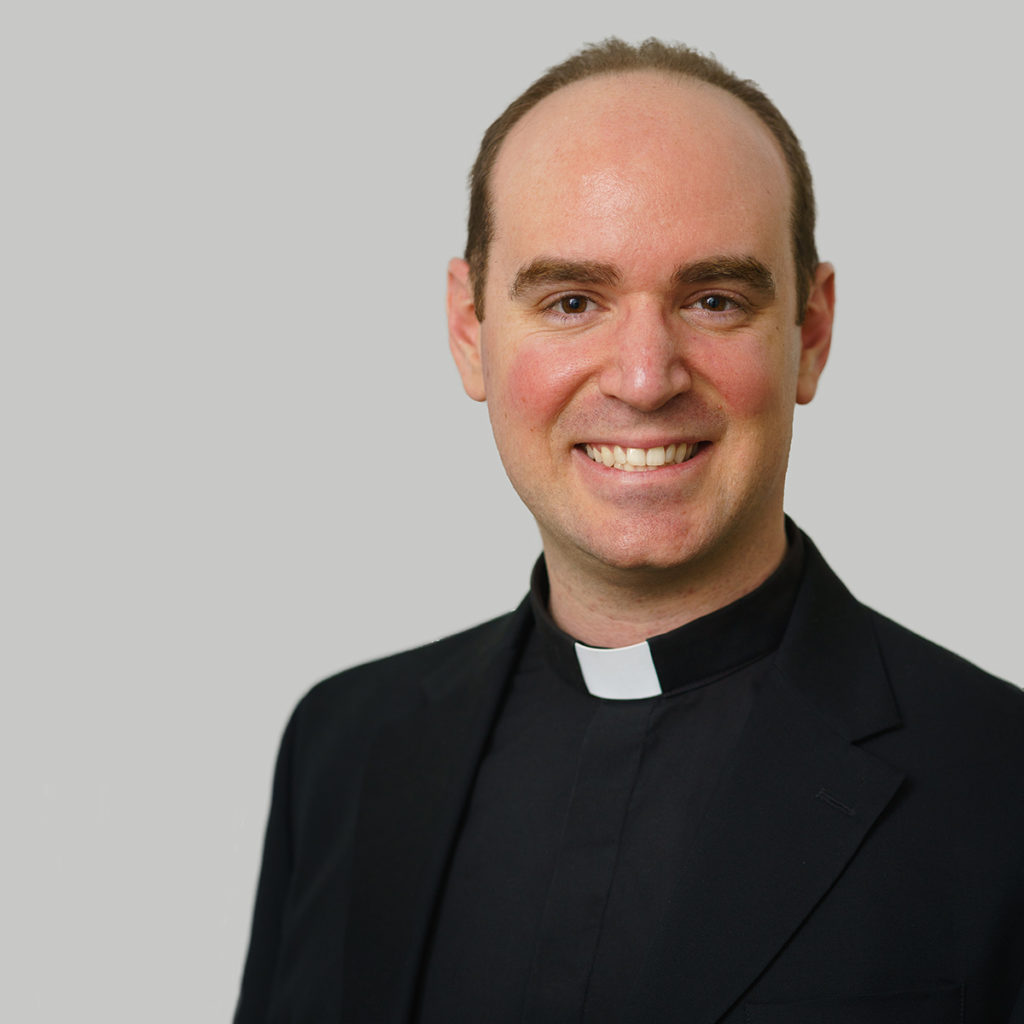
David Romero, S.J., who earned a degree in theological studies from the LMU Bellarmine College of Liberal Arts in 2009, first began to think about a priestly vocation as a student while on an LMU-sponsored trip to El Salvador. He entered the Society of Jesus after graduation, and this past summer he was ordained a priest in the Society of Jesus on July 7, 2020. During his training, he worked with an alternative spring break program in the Philippines and later taught religion at Bellarmine College Preparatory in San Jose, California. This summer, Romero returned to Los Angeles as a staff member with Christus Ministries, a program of Jesuits West that works with young adults on faith development and discernment of vocation. He lives in the Jesuit residence on the LMU campus. Romero was interviewed Elizabeth Bromley ’20.
What draws you to theology?
I think asking the deep questions about this God who is both infinite and intimate. Kind of like the horizon, as you approach it, there’s always more. I want to know more about this person, and I find myself falling more and more in love with those questions, exploring, and learning more.
What first inspired you to become a priest?
I had a close group of friends [at LMU] who were involved in Campus Ministry and who thought about becoming priests. I was dating someone at the time, but these were my best friends; I wanted to hang out with them. We formed a discernment group, but I wasn’t as serious. My image of a priest at the time was someone who lives alone, and I thought, “Wait, no sex? No, sorry, I can’t do that.” I just wrote it off. Then when I studied abroad in El Salvador, I started seriously discerning it. That reopened my whole imagination and heart up to what priesthood could be about.
“Don’t curse the darkness, but light a candle. I’m trying to light candles.”
Why did you choose the Jesuits?
As I was researching and talking to different people in different religious orders, I knew I wanted to live in community. I’m a raging extrovert. I found myself drawn to the Jesuit mission, spirituality and the kind of priests Jesuits are. I just loved interacting with them because I felt they were incredibly intelligent and very deeply spiritual, but also had an incredible sense of humor, grounded-ness and humanity.
What was a challenge you faced during your formation?
It’s been an ongoing challenge to learn to be interdependent and not independent, being vulnerable enough to ask for advice or seek help. It was a challenge to let go of my ego. But Jesus didn’t promise that would be easy.
Has your faith ever wavered during your lifetime?
I never left the church for any period of my life, but whenever there have been horrific atrocities, or even just seeing and hearing stories from Salvadorans or Filipinos, I have asked God: “Where are you in this?” But a lot of those people feel God with them in their struggle and suffering. It doesn’t take away from the horrific nature of what’s happened, but that’s helped my trust in God.
What is your image of God?
Right now, God has become more like a child. In the sense of the childlikeness of, “Hey, join with me, I want to care for you and love you.” When a child gives a hug, they want to squeeze you entirely and love you so intensely.
What’s it like being a Catholic priest when most people’s first reaction is to think about the sexual abuse of children?
We need good, healthy priests and those particular priests don’t equate with a good, healthy priesthood in general. Sadly, it is like if a father or a teacher abuses: It doesn’t equate with fatherhood or being a teacher in general. For me, dealing with the sexual abuse crisis has been a space to listen and not be quick to come to the defense of the church, to take people’s pain and suffering seriously because that’s what Jesus did. I want to be a part of the change. Don’t curse the darkness, but light a candle. I’m trying to light candles.
What’s the most surprising aspect of Jesuit life?
How free I feel to be myself. I’m coming with the mindset of, “Oh my gosh, you’ve taken vows of poverty, chastity and obedience. What part of that spells freedom?” But I just find myself to be incredibly free. I’m growing more and more into the man God has loved me to be for others. I find when I live the vows authentically, it frees me to love better.
What is the biggest misconception about Jesuit life?
That we’re all the same. There’s the old saying, “If you’ve met one Jesuit, you’ve met one Jesuit.” You can’t make sweeping judgments about us, we’re all bringing our unique selves to the mission.
Are you happy to be back at LMU?
Yeah, it’s great living here. Not a moment goes by when I’m walking around and I am flooded with memories of my own time. Moments of mistakes, but also where I learned and grew and, ultimately, where I was formed. I mean, I started my time at LMU not thinking I was going to be a priest at all. For me, being back on campus highlights how amazing and mysterious life is.
(Photo courtesy of Jesuits West)
